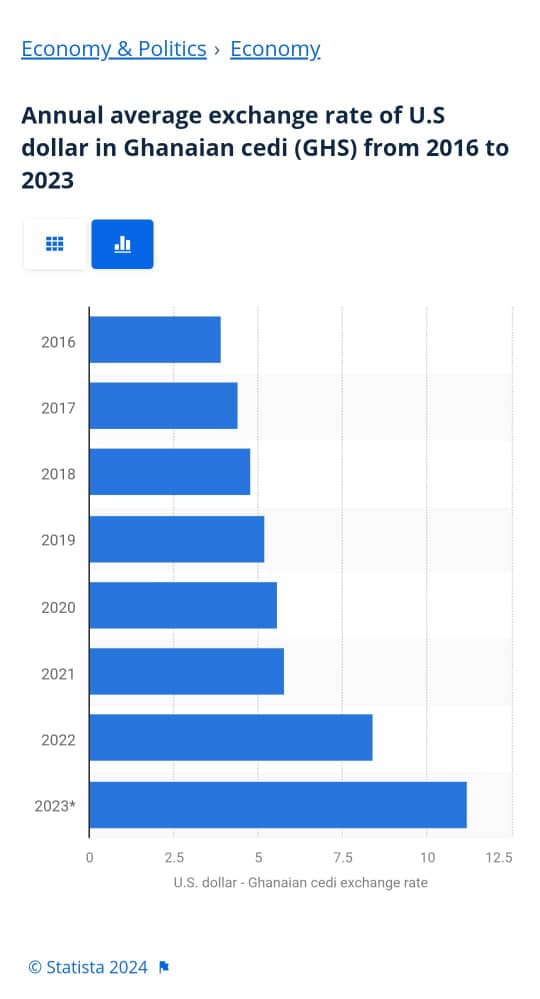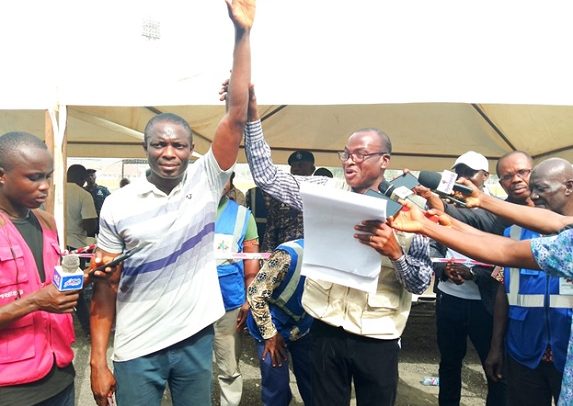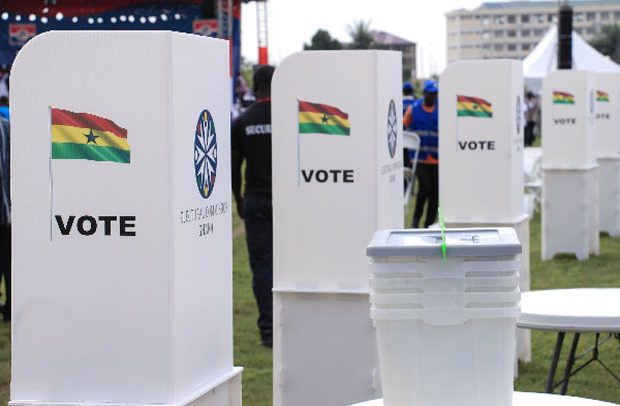
The political dynamics in Ghana, much like in many other countries, are influenced by a complex interplay of economic performance, perceptions of corruption, and voter expectations.
The data available illustrates significant fluctuations in the Ghanaian cedi (GHS) to US dollar (USD) exchange rate over the years, which serves as a proxy for economic stability and performance.

Key Points of Discussion:
1. Economic Performance:
– 2016: The exchange rate was 3.9 GHS to 1 USD. At this time, the New Patriotic Party (NPP) capitalized on the economic challenges and alleged corruption under the National Democratic Congress (NDC) to win the election.
– 2020: The rate had depreciated to 5.6 GHS to 1 USD. Despite the economic challenges and perceptions of corruption, the NPP retained the presidency but lost significant ground in parliament.
– 2024: With the exchange rate at 15.5 GHS to 1 USD, the economic challenges seem even more pronounced. This severe depreciation suggests significant economic distress, which could be a critical factor in the upcoming elections.
2. Corruption:
– Corruption has been a consistent theme in Ghanaian politics, often used by opposition parties to discredit the incumbent government. The effectiveness of these accusations often depends on the public’s perception and the media’s role in highlighting such issues.
3. 8-Year Political Cycle:
– Ghana has historically seen a pattern where political parties struggle to maintain power beyond two terms (8 years). This is often due to growing public dissatisfaction and the desire for change.
The NPP’s challenge to “break the 8” would require overcoming significant voter fatigue and dissatisfaction, especially in the face of economic hardships.
Analysis:
– Economic Hardships: The sharp depreciation of the cedi indicates severe economic issues, including potential inflation, reduced purchasing power, and overall economic instability. Voters experiencing these hardships might be inclined to seek change, especially if they feel the current government has failed to address their concerns effectively.
– Voter Expectations and Sentiment: Public sentiment is crucial. If the general populace feels that the NPP has not delivered on its promises, especially concerning economic stability and anti-corruption measures, it could lead to a significant shift in voter behaviour.
– Political Strategy: The NPP will need a robust strategy to counteract the negative economic indicators. This might include highlighting any economic achievements, focusing on future plans to stabilize the economy, and attempting to discredit the opposition’s ability to govern effectively.
Conclusion:
Breaking the 8-year cycle will be an uphill battle for the NPP, given the significant economic challenges and historical patterns of voter behaviour in Ghana. The 2024 elections will likely hinge on the electorate’s perception of the NPP’s handling of the economy, their trust in the party’s ability to address corruption, and their overall satisfaction with the current administration.
Effective communication, tangible economic improvements, and strategic campaigning will be crucial for the NPP if they hope to secure another term in office. We await with bated breath.
Explore the world of impactful news with CitiNewsroom on WhatsApp!
Click on the link to join the Citi Newsroom channel for curated, meaningful stories tailored just for YOU: https://whatsapp.com/channel/0029VaCYzPRAYlUPudDDe53x
No spams, just the stories that truly matter! #StayInformed #CitiNewsroom #CNRDigital
Read Full Story












Facebook
Twitter
Pinterest
Instagram
Google+
YouTube
LinkedIn
RSS